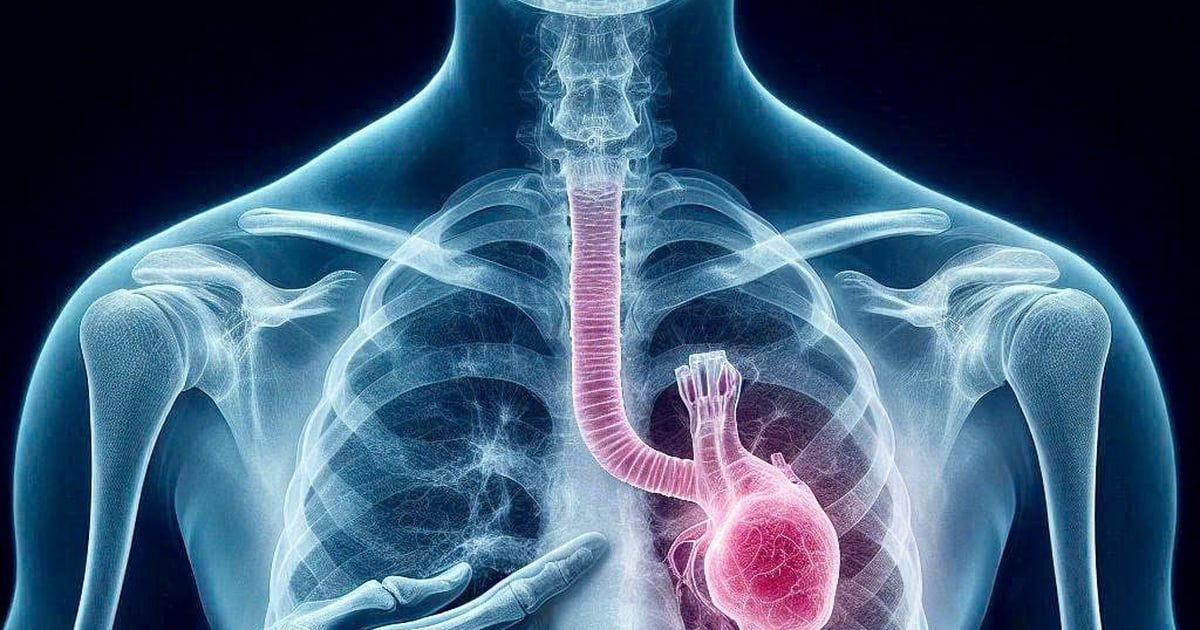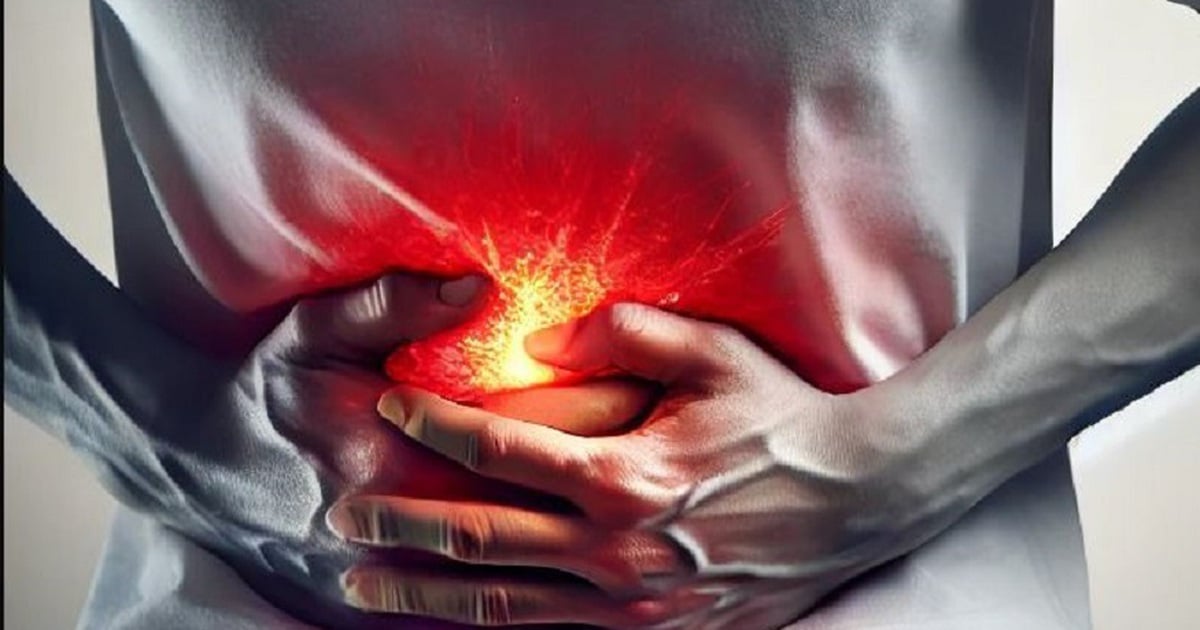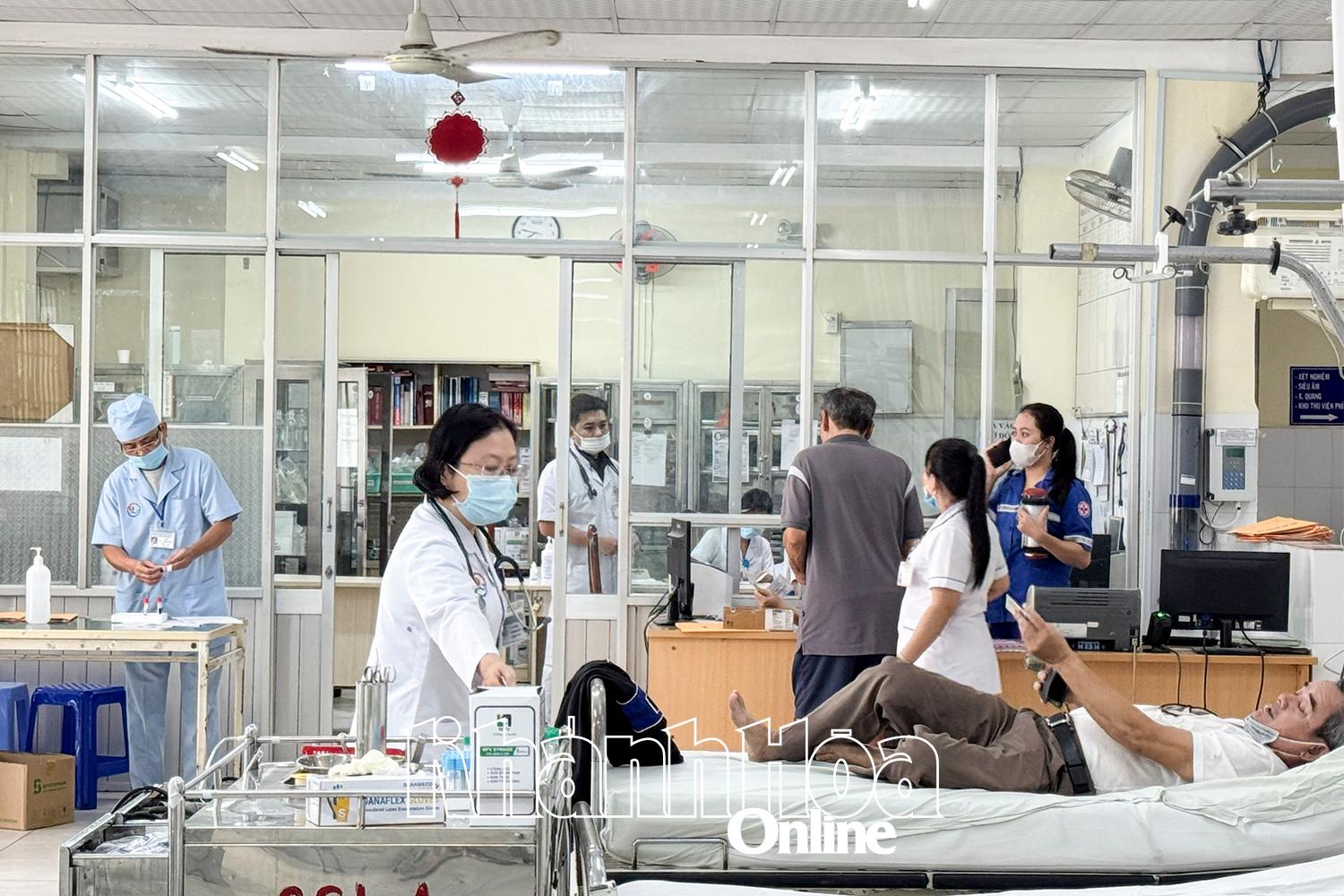Regularly drinking alcohol, smoking, being overweight, and having a family member with pancreatic cancer increase the risk of this disease.
The pancreas is a large gland located deep in the abdomen, behind the stomach and across the front of the spine. The pancreas consists of three parts, the head of the pancreas is surrounded by the duodenum (the duodenum is the first part of the small intestine), the middle part is the body of the pancreas, and the tail of the pancreas is very close to the spleen. The adult pancreas is about 15 cm long.
This organ functions to produce the hormones insulin and glucagon to control blood sugar levels and pancreatic enzymes to help the body digest food in the small intestine.
MSc. Dr. Nguyen Thi Thu Thao, Department of Oncology, Tam Anh General Hospital, Ho Chi Minh City, said that pancreatic cancer originates from endocrine or exocrine cells of the pancreas. Endocrine cells produce hormones that are released directly into the bloodstream. Exocrine cells (the layer of cells lining the pancreatic ducts) produce pancreatic enzymes, secreted into the small intestine to digest food. Pancreatic cancer is also sometimes called exocrine cancer.
Dr. Thao cited research showing that about 90% of pancreatic cancers originate from exocrine cells. Cancer cells often appear in the head of the pancreas. Smokers are twice as likely to develop pancreatic cancer as people who have never smoked. About 25% of pancreatic cancers are related to smoking habits.
Drinking high alcohol beverages can also lead to pancreatic cancer.
There is still no clear definition of how much alcohol consumption will cause pancreatic cancer, however the World Health Organization (WHO) recommends that men should not drink more than two units of alcohol per day, and one unit of alcohol per day for women. One unit of alcohol is equal to 10 grams of pure alcohol, equivalent to 3/4 of a 330 ml can of beer (5%), a 100 ml glass of wine (13.5%), a 330 ml glass of draft beer or a 30 ml glass of strong alcohol (40%).

Smoking and alcohol addiction can lead to pancreatic cancer. Photo: Freepik
Other factors that contribute to the risk of the disease include lack of exercise and obesity (body mass index BMI of 30 or higher).
People with diabetes, long-term use of diabetes medication, chronic pancreatitis, family history of pancreatitis, pancreatic cancer, frequent exposure to chemicals and heavy metals... are in the high-risk group.
Changes in the genetic code (gene mutations) can increase the risk of developing this disease. Gene mutations occur when errors occur in the genetic code. These mutations can be inherited from parents to children or acquired (non-inherited gene mutations).
Some groups of diseases are associated with inherited gene mutations that can cause pancreatic cancer, such as familial pancreatitis caused by mutations in the PRSS1, SPINK1 or CFTR genes; hereditary breast-ovarian cancer syndrome caused by mutations in the BRCA1 and/or BRCA2 genes.

People with chronic pancreatitis are at high risk of cancer and need regular screening. Photo: Freepik
Most patients are diagnosed with pancreatic cancer when the disease is in an advanced stage, with poor prognosis for treatment and recovery.
Doctor Thao recommends that people with symptoms such as rapid weight loss, nausea, vomiting, dark urine, fatty stools, jaundice, yellow eyes, indigestion, abdominal pain, back pain, pancreatitis, diabetes, deep vein thrombosis, pulmonary embolism... should be screened for pancreatic cancer.
Blood tests to look for the marker CA 19-9 (increased in patients with pancreatic cancer), computed tomography, magnetic resonance cholangiopancreatography, endoscopic ultrasound, endoscopic retrograde cholangiopancreatography, and sometimes laparoscopic surgery are needed to assess the extent of the tumor's influence on nearby structures as well as detect metastatic lesions.
Do not smoke, limit the use of high-alcohol drinks, avoid exposure to pesticides; increase green vegetable intake; maintain a stable weight... to help reduce the risk of this type of cancer.
Tue Tram
| Readers ask questions about cancer here for doctors to answer |
Source link



![[Photo] Opening of the 11th Conference of the 13th Party Central Committee](https://vstatic.vietnam.vn/vietnam/resource/IMAGE/2025/4/10/f9e717b67de343d7b687cb419c0829a2)

![[Photo] Unique folk games at Chuong Village Festival](https://vstatic.vietnam.vn/vietnam/resource/IMAGE/2025/4/10/cff805a06fdd443b9474c017f98075a4)
![[Photo] April Festival in Can Tho City](https://vstatic.vietnam.vn/vietnam/resource/IMAGE/2025/4/10/bf5ae82870e648fabfbcc93a25b481ea)


























































































Comment (0)